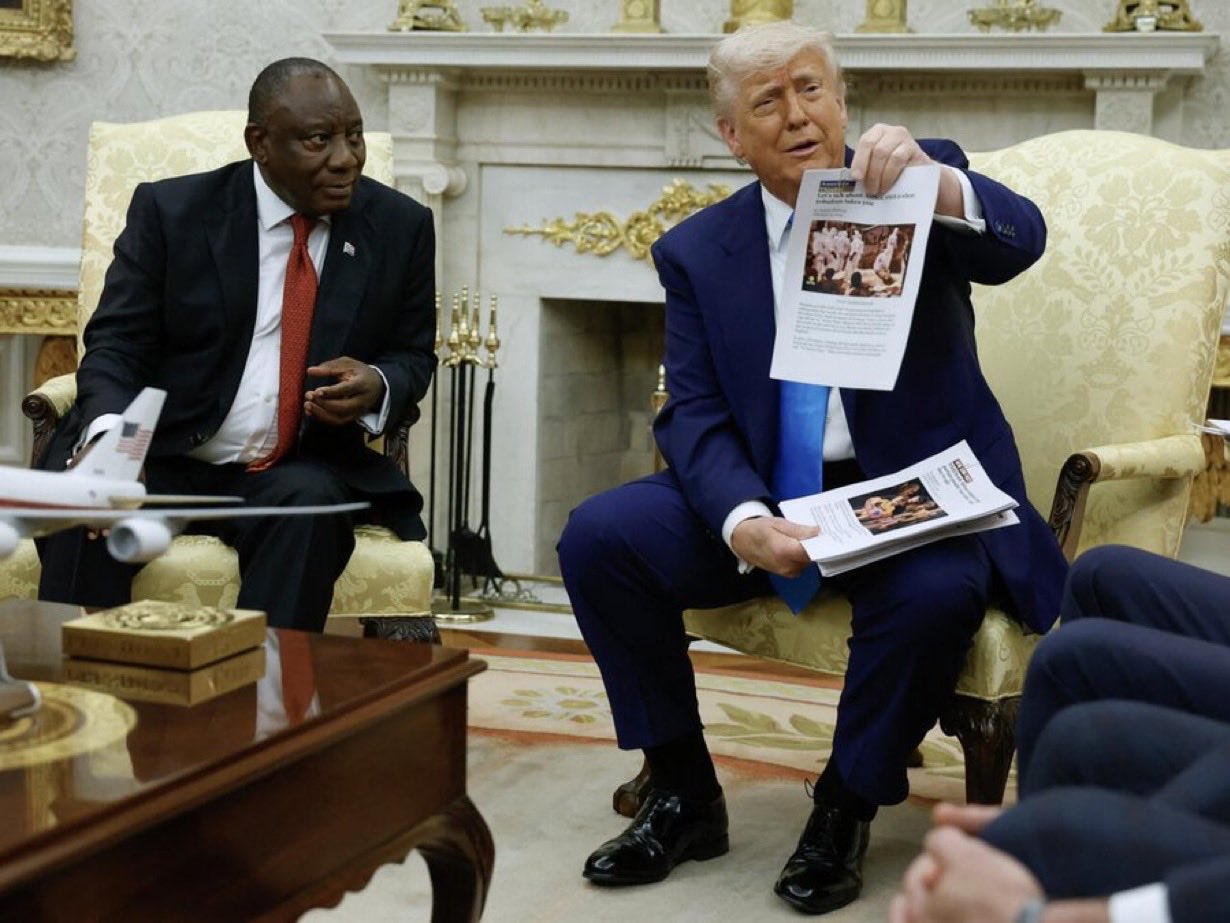News
US Warns South Africa Against G20 Consensus Declaration, Casting Shadow Over Johannesburg Summit

US–SA Tensions Flare as Washington Pushes Back Against G20 Consensus Declaration
A high-stakes diplomatic standoff overshadows Africa’s first-ever G20 summit.
A Weekend Meant to Showcase Africa Turns Diplomatic
What should have been a landmark moment for South Africahosting the G20 summit for the first time on African soilhas instead been disrupted by a sharp and unusually public warning from the United States.
Just days before world leaders arrived in Johannesburg, Washington delivered a formal diplomatic message to Pretoria: do not issue a joint G20 leaders’ declaration. If South Africa goes ahead, America will refuse to recognise it.
It’s an extraordinary move, even by recent geopolitical standards, and it places South Africa at the centre of a global tug-of-war over messaging, alliances, and influence.
The Warning That Shook Pretoria
The communication, delivered on 15 November and reportedly reviewed by Bloomberg, is direct to the point of bluntness. The United States makes it clear it will:
-
Not participate in preparatory meetings before the summit
-
Not recognise any declaration framed as a “consensus”
-
Not support Pretoria’s priorities for the summit
Washington argues that South Africa’s proposed themes clash with its own foreign policy positions.
“The US opposes issuance of any G20 summit outcome document under the premise of a consensus G20 position, without US agreement,” the note reportedly reads.
If South Africa insists on releasing something, the US says it must be labelled merely a “Chair’s Statement”a diplomatic downgrade indicating no shared agreement.
In short: you may talk, but don’t speak for us.
Pretoria Pushes Forward
South Africa, however, is not backing down.
Officials insist that there will be a G20 leaders’ declaration when the summit wraps up on Sunday. Speaking in Johannesburg, International Relations and Cooperation Minister Ronald Lamola flatly rejected the idea of ending the event without one.
For Pretoria, the declaration is more than paperwork.
It is about legitimacy, symbolism, and South-South momentum.
After Indonesia, India and Brazil used their G20 presidencies to amplify Global South prioritiessuch as development reform, climate financing and debt restructuringSouth Africa had hoped to build on that same trajectory.
A declaration would showcase unity and underline the continent’s growing diplomatic confidence.
A Chair’s Statement, on the other hand, signals disagreement and division.
Why the US Is Digging In
While the US has not publicly detailed its objections, analysts note that tensions have been simmering for months. Washington has criticised South Africa’s positions on Ukraine, Gaza, and BRICS expansionseeing Pretoria as drifting toward Russia and China.
The G20 declaration, if shaped by South Africa, would likely include language on:
-
Climate finance and historical responsibility
-
Global development bank reform
-
Debt-relief for low-income nations
-
South-South solidarity
These topics are increasingly sensitive in US domestic politics.
A Shadow Over a Historic Summit
This standoff is not just a diplomatic headacheit risks overshadowing a summit meant to mark Africa’s arrival as a global agenda-setter.
Johannesburg’s hosting duties hold deep significance for local observers. Many hoped the event would:
-
Elevate Africa’s voice on global economic challenges
-
Push climate finance commitments beyond rhetoric
-
Demand fairer treatment for developing nations
Now, much of the conversation is focused on whether the US will derail the final communique.
On South African social media, reactions are split.
Some users accuse the US of undermining African leadership; others argue Pretoria “walked into a storm” by trying to balance BRICS loyalties with G20 expectations.
What Happens if There Is No Consensus?
If Washington sticks to its position, the summit may end with:
-
A Chair’s Statement issued solely by South Africa
-
Fragmented messaging from G20 members
-
A symbolic loss for Pretoria as host
-
Diplomatic friction ahead of the US taking over the G20 presidency in December
It would be the kind of finale that global powers dread but spectators remember.
All Eyes on Sunday
President Cyril Ramaphosa will hand over the G20 presidency to the United States next month. Whether the weekend ends with harmony or fracture may set the tone for an entire year of American leadership.
For now, Pretoria remains defiant, Washington remains unmoved, and the world waits to see whose version of the G20 story will be printed in the history books.
MK Party Accuses Ramaphosa of ‘Political Theatre’ as South Africa Hosts First G20 Summit
{Source: IOL}
Follow Joburg ETC on Facebook, Twitter , TikTok and Instagram
For more News in Johannesburg, visit joburgetc.com



























